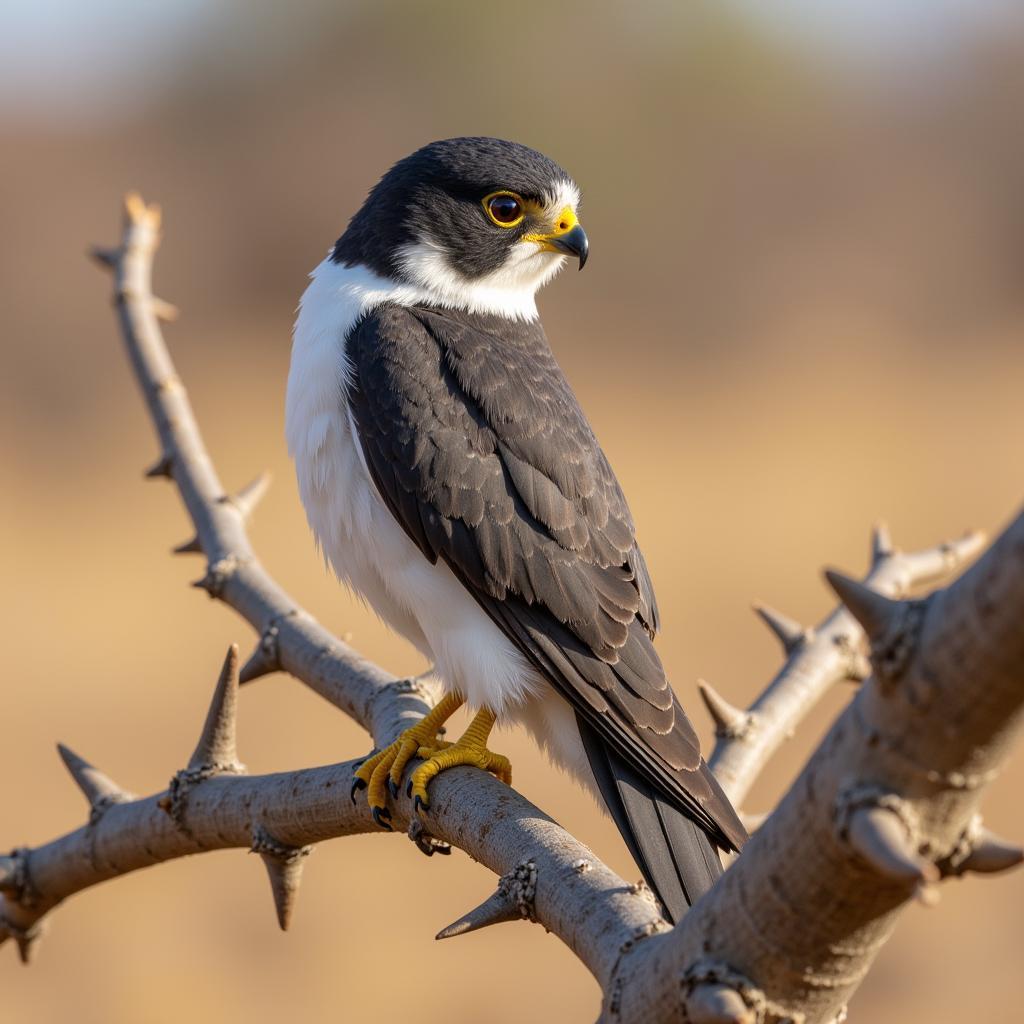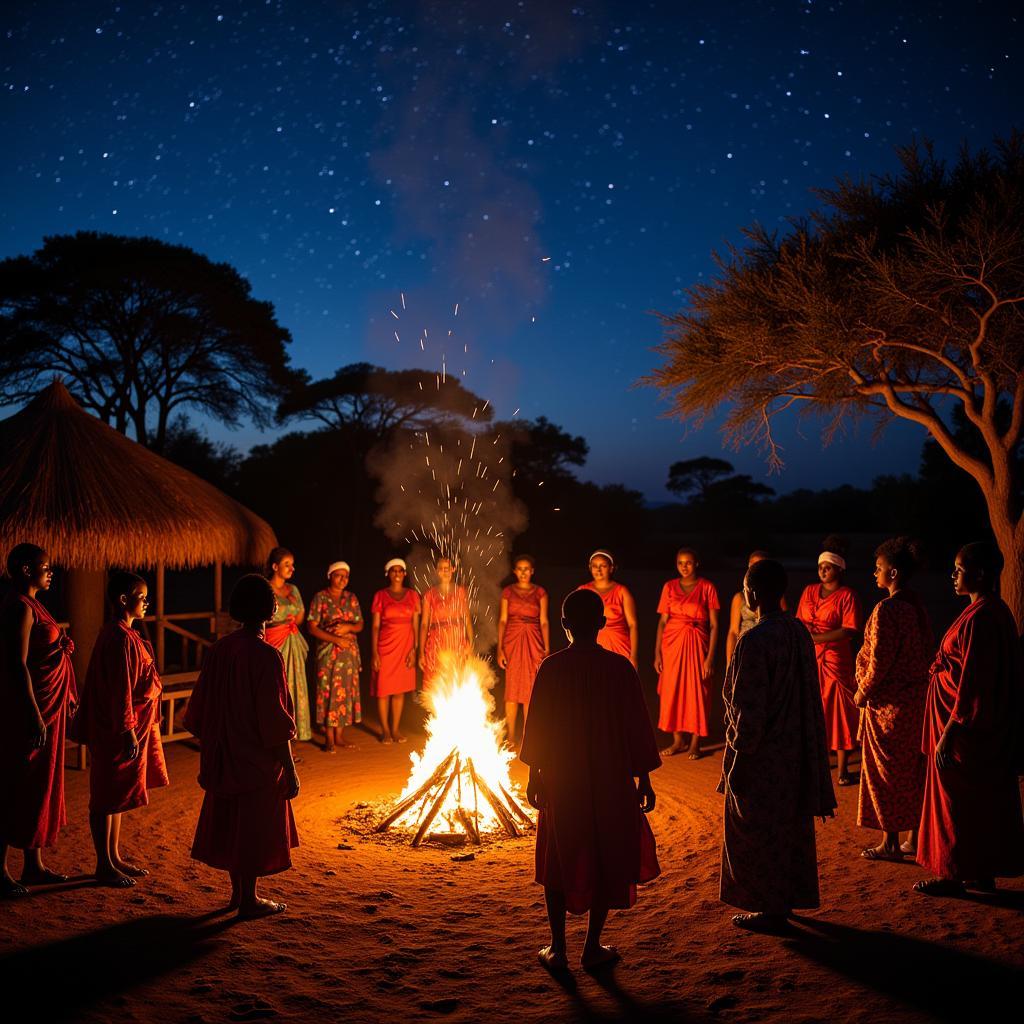Protecting Africa’s Future: The Vital Role of African Habitat Conservancy
African Habitat Conservancy is crucial for safeguarding the continent’s unique biodiversity and ensuring the survival of countless species. Protecting these diverse ecosystems, from the savannas to the rainforests, is not only vital for wildlife but also for the communities that depend on them for their livelihoods and cultural heritage. The future of Africa is intertwined with the success of these conservation efforts.
Understanding the Importance of African Habitat Conservancy
Conserving African habitats is a multifaceted challenge that requires a collaborative approach. It involves protecting endangered species like the african black rhino, managing natural resources sustainably, and empowering local communities to participate in conservation efforts. This approach recognizes that conservation is not just about protecting wildlife; it’s about ensuring a healthy and sustainable future for all.
What is driving the need for African habitat conservancy? Factors such as habitat loss due to deforestation, agricultural expansion, and urbanization, as well as poaching and climate change, are posing significant threats to Africa’s biodiversity. Addressing these challenges requires a concerted effort from governments, NGOs, local communities, and international organizations.
The Impact of Habitat Loss on Wildlife
Habitat loss is arguably the most pressing threat to wildlife across the continent. As human populations grow and demand for resources increases, natural habitats are converted for agriculture, infrastructure development, and other human activities. This fragmentation and destruction of habitats isolate wildlife populations, making them more vulnerable to disease and genetic bottlenecks.
The Role of Climate Change in African Habitat Conservancy
Climate change is exacerbating existing threats to African habitats. Changing rainfall patterns, increased temperatures, and extreme weather events are altering ecosystems and making them less hospitable for many species. These changes can lead to shifts in species distributions, increased competition for resources, and greater susceptibility to disease.
Community-Based Conservation: Empowering Local People
Recognizing the vital role of local communities in conservation, many organizations are promoting community-based conservation initiatives. These programs empower local people to manage their own natural resources, providing them with economic incentives to protect wildlife and their habitats. This approach not only benefits biodiversity but also improves the livelihoods of local communities.
How You Can Support African Habitat Conservancy
You can contribute to these crucial efforts in various ways. Supporting reputable conservation organizations working in Africa, advocating for policies that protect wildlife and their habitats, and making sustainable choices in your daily life can all make a difference. Even small actions, when multiplied across individuals and communities, can have a significant positive impact.
Supporting Conservation Organizations
Numerous organizations are working tirelessly to protect African habitats. By donating to these organizations, you can directly support their efforts to combat poaching, restore degraded habitats, and empower local communities.
Making Sustainable Choices
Making conscious consumer choices can also play a role in supporting African habitat conservancy. Choosing products that are sustainably sourced, reducing your carbon footprint, and supporting businesses that prioritize environmental responsibility can help to minimize the impact of human activities on African ecosystems.
Dr. Anika Nkosi, a prominent conservation biologist based in Kenya, emphasizes, “Conservation is not just a job; it’s a calling. It requires dedication, passion, and a deep understanding of the interconnectedness of all living things.” She further adds, “The future of Africa’s wildlife rests in our hands. We must act now to protect these precious ecosystems for generations to come.”
Another expert, Mr. Joseph Mwangi, a community leader involved in conservation projects in Tanzania, highlights the importance of local involvement. “Our ancestors lived in harmony with nature for centuries. We must learn from their wisdom and work together to protect our natural heritage.”
Conclusion
African habitat conservancy is essential for preserving the continent’s rich biodiversity and securing a sustainable future for both wildlife and people. By understanding the challenges and supporting effective conservation initiatives, we can help to ensure that Africa’s natural wonders continue to thrive for generations to come. The time to act is now. Let us work together to protect this incredible continent and its unique wildlife.
FAQ
-
What is the biggest threat to African habitats? Habitat loss due to human activities like agriculture and deforestation is the most significant threat.
-
How can I help protect African habitats? You can support conservation organizations, make sustainable choices, and advocate for policies that protect wildlife.
-
What is community-based conservation? It involves empowering local communities to manage and protect their own natural resources.
-
Why is African habitat conservancy important? It’s crucial for biodiversity, livelihoods, cultural heritage, and the overall health of the planet.
-
What are some of the key organizations working in African habitat conservancy? (This question encourages users to further explore related content within the website, linking to pages about specific organizations.)
-
How does climate change impact African habitats? It exacerbates existing threats like habitat loss and makes ecosystems less hospitable for many species.
-
What are some examples of successful conservation initiatives in Africa? (This question prompts users to discover success stories and learn more about effective conservation strategies.)
Need support? Contact us 24/7: Phone: +255768904061, Email: kaka.mag@gmail.com or visit us at Mbarali DC Mawindi, Kangaga, Tanzania.




